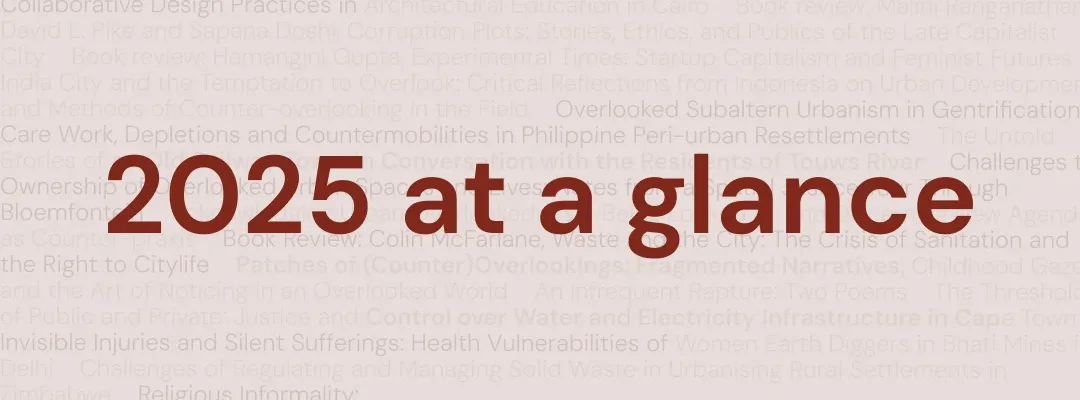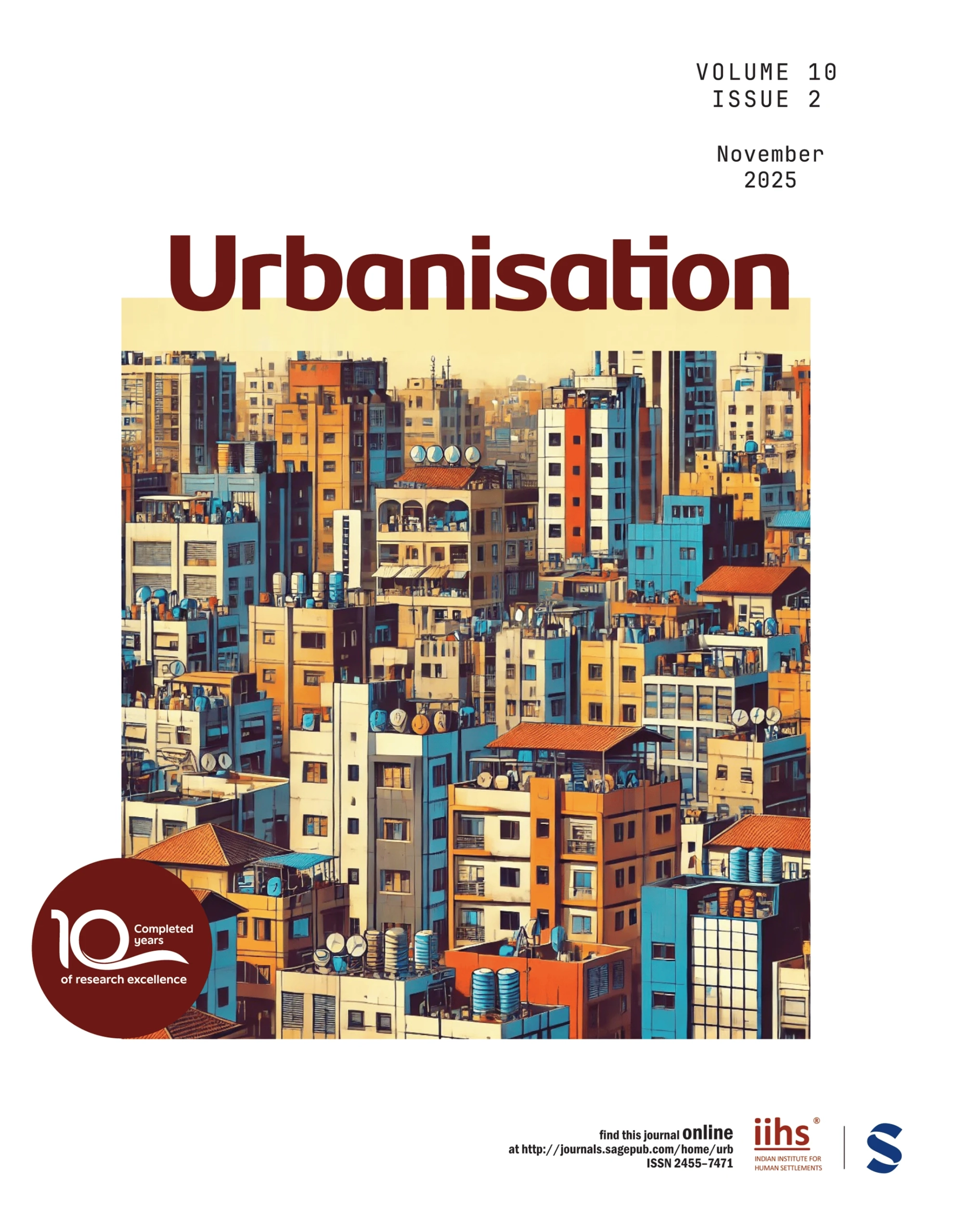A biannual peer-reviewed journal with a firm footprint in the Global South
A biannual peer-reviewed journal with a firm footprint in the Global South
Get free access to articles from the IIHS Urbanisation archives on the World Habitat Day theme of
‘Engaging Youth to Create a Better Urban Future’.
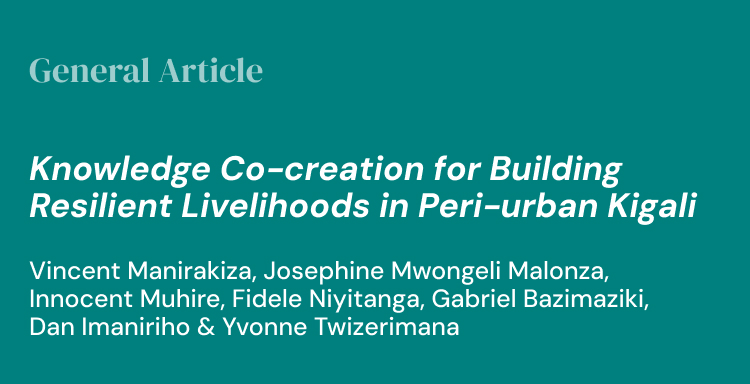



Free Access
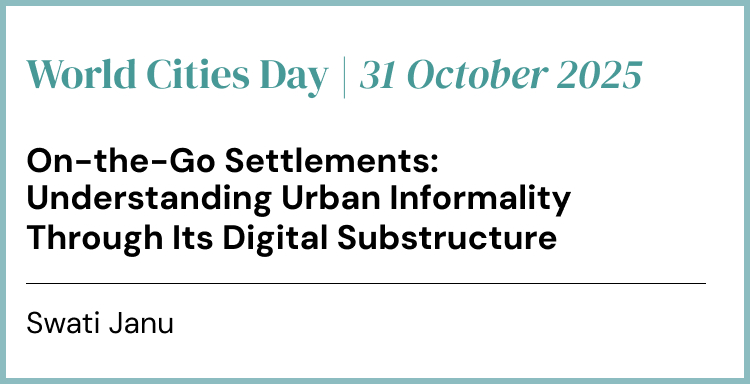
Free Access
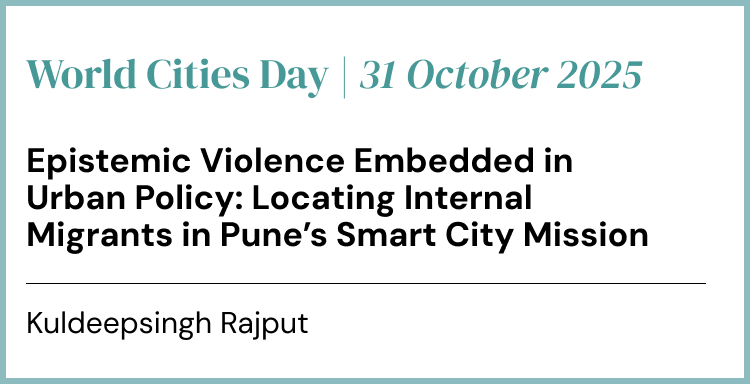
A Decade of Urbanisation
OnlineFirst
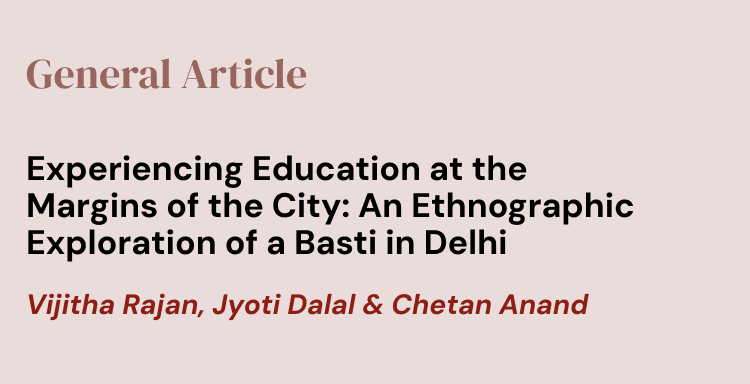
New Issue
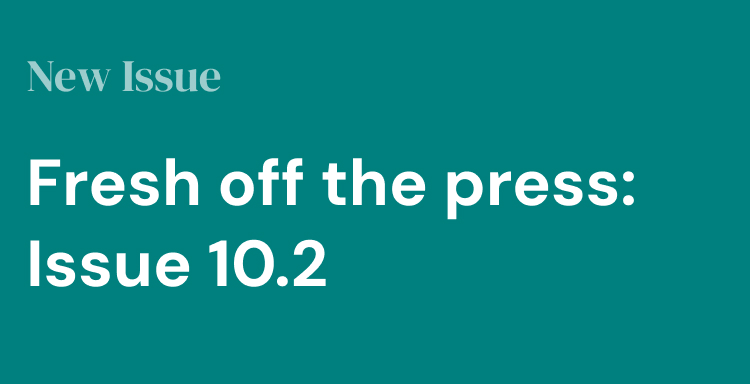
OnlineFirst
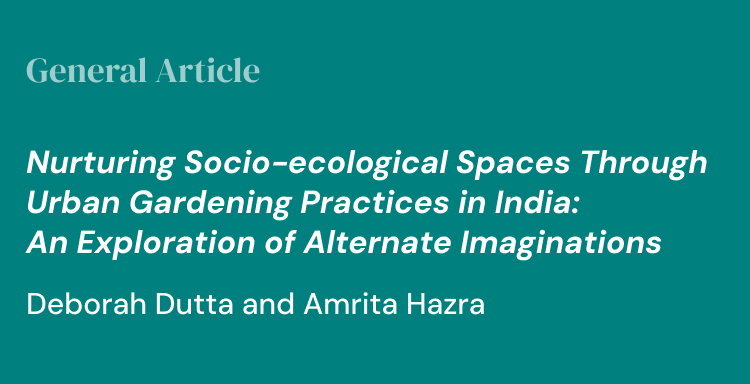
OnlineFirst
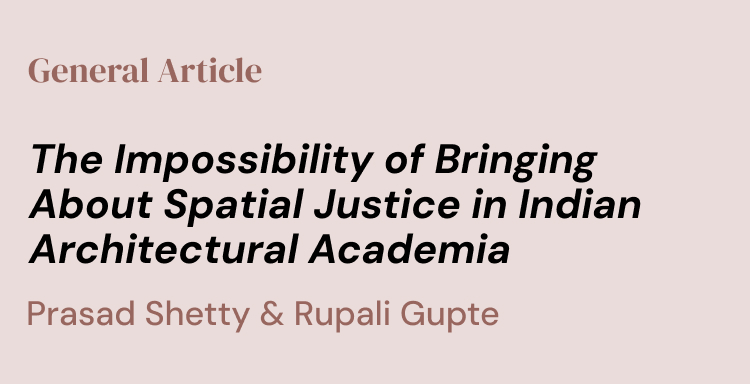
OnlineFirst

OnlineFirst

Urbanisation is a response to a particular moment of 21st century global urbanisation within an increasingly re-arranged world. The drivers and locations of contemporary urbanisation are after a long historical gap, in the ‘Global South’ i.e. the countries of Asia, Africa and South America. This moment poses challenges for which we possess neither effective knowledge nor adequate practice. Urbanisation emerges out of three interconnected responses to this moment.
The first is to provide a platform to understand contemporary global urbanisation with a firm footprint in the South. In doing so, we see the ‘Global South’ not as a physical location but as a representative of a particular set of challenges and opportunities that determine the central questions of our age and demand critical analysis and effective intervention.
The second is to build on this new knowledge to re-think the epistemological canon of urbanisation and its associated systems and processes. This ‘canon’ built on a 19th and 20th century imagination and practice has proved to be particular rather than universal. The journal stands firmly with the ‘southern turn’ in urban theory, building new knowledge from the experiences of cities and regions of the Global South to speak with all cities and settlements and re-think the foundations of current urban theory.
The third is to reflexively engage with and theorise practice. Urban questions refuse simple boundaries of sector or domain in addition to discipline or the assumed ‘theory-practice’ divide. The ‘wicked problems’ of cities, city-regions and hybrid rural-urban settlements are sites that defy most canonical knowledge, techniques, methods, categories and terms. Yet there remain few platforms within which to document, reflect upon, critique and analyse practice, let alone imagine new forms and techniques of practice. Some of this is because of the continuing persistence of hierarchies between forms of knowledge and its production – an artificial separation that this journal explicitly seeks to address.
Anchored at the Indian Institute for Human Settlements, Bengaluru, Urbanisation is published on a bi-annual basis (May, November) by Sage Publications India. It is available worldwide online through international journal indices such as SAGE Premiere and HighWire, and in print through Sage’s extensive distribution channels. The current issue can be found here.
Urbanisation aims to publish comparative as well as collaborative interdisciplinary scholarship that will illuminate the global urban condition beginning with a firm footprint in the Global South. A platform that brings together interdisciplinary scholarship on the urban, it is equally interested in critical and reflexive discussions on diverse forms and sectors of urban practice. It seeks to do so not only to inform urban theory, policy and practice but also to enable the construction of diverse forms of knowledge and knowledge production needed to enable us to understand contemporary urban life.
The Journal seeks to:
- Promote theorisation of urban processes from the perspective of a wide range of practices that shape urban life.
- Publish comparative as well as collaborative interdisciplinary scholarship that will illuminate the global urban condition beginning with a firm footprint in the Global South.
- Provide a platform that brings together and puts into conversation interdisciplinary scholarship on the urban.
- Provide a platform that allows critical and reflexive discussion from and on diverse forms and sectors of urban practice.
- Enable diverse forms of knowledge and knowledge production particularly those that bridge the theory-practice divide as well as disciplinary and methodological boundaries.
- Learn from and inform urban policy and practice across a range of domains and sectors.
Urbanisation has among its Editors and Advisory Board members some of the world’s leading academics and practitioners in the broad urban field.
Volume 10 Issue 2
Table of Contents
EDITORIAL
Urbanisation at Ten: Rethinking Urban Knowledge Creation from the Global South
GENERAL ARTICLES
The Threshold of Public and Private: Justice and Control over Water and Electricity Infrastructure in Cape Town
Temba John Dawson Middelmann
Challenges of Regulating and Managing Solid Waste in Urbanising Rural Settlements in Zimbabwe
Emmanuel Manzungu, Kudzai Gopoza and Tinoziva Simbanegavi
Religious Informality: Understanding Religion in the Urban Public Sphere in Addis Ababa
Asebe Amenu Tufa, Mercy Fekadu Mulugeta, Fana Gebresenbet and Edegilign Hailu
WRITING FROM PRACTICE
LEARNING AND PEDAGOGY
Making Space for Innovation: Audiovisual Collaborative Design Practices in Architectural Education in Cairo
Heba Mourad
REVIEW
Malini Ranganathan, David L. Pike and Sapana Doshi, Corruption Plots: Stories, Ethics, and Publics of the Late Capitalist City
Anupreet Singh Tiwana and Amol Nimsadkar
Book review: Hemangini Gupta, Experimental Times: Startup Capitalism and Feminist Futures in India
Kanika Mahajan
Volume 7 Issue 1S
Special Issue: Cities and Climate Change
Guest Editors: Aromar Revi, Debra Roberts and Amir Bazaz
Table of Contents
EDITORIAL
GENERAL ARTICLES
Urban Climate Politics in Emerging Economies: A Multi-Level Governance Perspective
Fee Stehle, Thomas Hickmann, Markus Lederer, and Chris Höhne
Engaging City Residents in Climate Action: Addressing the Personal and Group Value-Base Behind Residents’ Climate Actions
Thijs Bouman and Linda Steg
Towards Green and Low-Carbon Development in Chinese Cities
Meian Chen, Li Yang, Min Hu, and Diego Montero
WRITING FROM PRACTICE
The State of City Diplomacy
Ian Klaus
Greening Cities from Within: Generating Ecosystem Services Where We Live
Jagdish Krishnaswamy
REVIEW
Book review: Mark Swilling, The Age of Sustainability: Just Transitions in a Complex World
Jasmitha Arvind
Volume 1
Volume 2
Volume 3
Volume 4
Volume 5
Volume 6
- Issue 1: Special Issue: Agrarian Urbanisation: Emerging Entanglements of Land, Labour and Capital, May 2021
- Issue 1 (Suppl): Special Issue: Gender, Social Change and Urbanisation in North India, September 2021
- Issue 2, November 2021
Volume 7
- Issue 1: Special Issue: Urban Inequality and COVID-19: The Crisis at the Heart of the Pandemic, May 2022
- Issue 1 (Suppl): Special Issue: Cities and Climate Change, November 2022
- Issue 2, November 2022
Volume 8
Volume 9
- Issue 1: Special Issue: The Future of Urbanisation: Migration Policies in the Post-pandemic World, May 2024
- Issue 2, November 2024
Volume 10
Submissions to our regular issues are open all-year round and evaluated on a rolling basis.
- Submissions will be subject to double-anonymised peer review.
- Submissions should be sent via https://peerreview.sagepub.com/urb
- Please refer to the submission guidelines before making your submission.
Urbanisation invites submissions for the following sections:
General Articles (4,000–10,000 words)
We invite original research and review articles that
- deepen our understanding of discourses and realities of contemporary global urbanisation at multiple scales—from the global to local;
- offer new ways of reading cities at times of transition, recognition and refraction;
- meet the journal’s core mandate of curating located knowledge from the Global South, that is, the countries of Asia, Africa and South America;
- cross disciplinary boundaries;
- engage with cities of the Global South—not only the southern megacity but also the rapid transitions of small and medium towns and the dynamics of urbanisation in these sites.
Writing from Practice (up to 10,000 words)
Urban questions refuse simple boundaries of theory and practice. To encourage and enable theorising from practice, articles in this section attempt to understand the complexity of doing, acting and intervening in the urban and regional space, across different scales, from neighbourhood to city-region, national to global. This includes a range of formal and informal, client-driven or community-led, deeply local or transnational forms of urban practice across planning, design, policy formulation and implementation, economic and development consulting, project management, activism and advocacy, artistic and literary activity, urban service delivery, engineering, construction and journalism or community engagement, to name just a few. We do not seek staid narratives of ‘best practice’ or just an empirical documentation of projects and actions. Instead, we encourage reflexive contributions that seek to analyse and write from practice rather than just narrate it.
Learning and Pedagogy (4,000–6,000 words)
How can comparative experiences of learning be developed, good lessons shared and disseminated? How must the epistemic experience and endeavour of the urban become part of the teaching–learning experience, where one borrows from other disciplines, as well as encounters its own? These are some of the larger questions that articles in this section engage with.
On Method (4,000–6,000 words)
This section specifically focuses on the methods we must bring to bear to capture the sheer diversity of the urban experience and oeuvre, particularly in the Global South. How can such methods compliment and detract from accepted pedagogies? In the methods of knowing the urban, do prevailing tools of analysis de-ontologise the urban into a field of constant contemporaneity and a never-ending instrumental search for ‘solutions’?
Evaluations and Assessments (4,000–6,000 words)
Refusing a clear and easy distinction between academic work and ‘grey literature’ (such as reports, project evaluation and implementation studies), this section invites writing about work in the field, not just as rich empirical fodder but a space for reflection on the complexity of proposition and intervention.
Visual Essay (3-5 pieces of original work, i.e. paintings/sketches and/or photographs)
These are visual narratives about the city, captured in painting, sketch work, photography and other similar mixed media representations. They are reflections of the urban condition, conveying statements of meaning about life in cities, transitions, moments, domestic spaces, as well as public and private conditions of being.
Poetry (3 poems or 1 long poem. Total length not exceeding three A4 size pages)
Review (800–1,500 words)
We invite reviews of books, films, exhibitions and other forms of expression that engage with the city as a triggers of conversations, critiques and debates.
CALL FOR PAPERS
This special edition in Urbanisation seeks to explore the multifaceted relationship between informality and climate change in cities in the Global South. We welcome submissions focusing on the global South and the following themes, including case studies and evidence synthesis:
- Climate impacts and resilience in informal settlements
- Informal economies, vulnerability and resilience
- Informal governance and climate change adaptation
- Informal governance and climate change mitigation
Thank you for your overwhelming response!
Abstract submissions are now closed.
Upcoming Events



Urbanisation, in collaboration with Publics@IIHS, presents a panel discussion featuring the contributors of its latest Special Issue, ‘Overlooked people, places, and practices: Shifting the gaze in Asian and South African cities’.
This panel will explore ‘Overlooked Cities’ and related concepts—overlooked urbanities, overlookedness, and counter-overlooking— across Asian and South African Cities, with the aim of pluralising urban studies and incorporating an ethics of care in research. The panellists will discuss how they have shifted their gaze as researchers, practitioners and artists from diagnosis to reframing and crafting alternatives in their works, bringing into focus the neglected lived experiences and practices of urban dwellers in overlooked (or secondary) cities.
Moderator
 Julia Wesely
Julia Wesely
Postdoctoral researcher, Department of Geography and Regional Research, University of Vienna, Vienna
Julia Wesely is a postdoctoral researcher at the Urban Studies Working Group of University of Vienna, who holds a PhD in development planning from The Bartlett Development Planning Unit, University College London. Her research, teaching and public engagement focuses on the intersections of environmental (in-)justice, co-learning and knowledge (co-)production. Julia has worked in several Latin American, African and European cities and is part of the Overlooked Cities Collective.
Isolde de Villiers
Supreme Court of Appeal, South Africa; Extraordinary Professor, Free State Centre for Human Rights, University of the Free State, South Africa
Isolde is a law researcher at the Supreme Court of Appeal in South Africa, and Extraordinary Professor at the Free State Centre for Human Rights, University of the Free State. She works on spatial justice at the intersection of law and cities.
Speakers
 Rita Padawangi
Rita Padawangi
Associate Professor
College of Interdisciplinary & Experiential Learning
Singapore University of Social Sciences
Rita Padawangi is Associate Professor at the College of Interdisciplinary & Experiential Learning, Singapore University of Social Sciences. A sociologist by training, her research interests are social movements, environmental justice, and community engagement in cities.
 Chester Antonino C. Arcilla
Chester Antonino C. Arcilla
Associate Professor, Development Studies Program, Department of Social Sciences, University of the Philippines-Manila
Research Associate, Department of Sociology, University of Pretoria
Chester is associate professor of economics and urban studies in the University of the Philippines-Manila. His work focuses on urban marginality and right to the city struggles building on engaged ethnography. His research focuses on radical geographies of resistances, urban poor home-making, urban planning and real estate financialisation; value-chain analysis of slum economies; habitation and livelihood informality; political economy of socialised housing; subaltern democratic struggles, and urban elite research.
 Lateefah Joseph-Rajab
Lateefah Joseph-Rajab
Master’s student, Department of Architecture, Planning and Geomatics, University of Cape Town, Cape Town
Lateefah is South African and Cape Town is her home. She completed her undergraduate studies in Environmental Management at the University of South Africa, and her honours year in Geography at the University of the Witwatersrand. She is currently in the process of completing her masters in Southern Urbanism at the University of Cape Town. Her interest centres around the ‘forgottenness’ of South Africa’s small towns.
 Stephan De Beer
Stephan De Beer
Director, Centre for Faith and Community & Professor of Practical Theology, University of Pretoria
Stephan is an urbanist-theologian committed to making visible what is made invisible in African cities. Having doctoral degrees in theology and urban planning, Stephan works in a transdisciplinary manner, interested in the role of faith and religion in African cities; research and advocacy on homelessness, housing and spatial justice; and exploring liberative urban pedagogies.
 Aireen Grace Andal
Aireen Grace Andal
Research Fellow, Airlangga Institute of Indian Ocean Crossroads, Airlangga University, Indonesia
Aireen is a human geographer with doctoral degrees in Geography from Macquarie University, Australia, and in Social Philosophy from Ural Federal University, Russian Federation. She is currently a research fellow at the Airlangga Institute of Indian Ocean Crossroads (AIIOC) in Indonesia and a fellow at the Space for Engagement and Epistemic Diversity (SEED) at the University of Melbourne. Her research explores children’s engagement with urban spaces across Southeast Asia.
 Siddharth Dasgupta
Siddharth Dasgupta
Writer & Culture Journalist, Poona
Siddharth Dasgupta’s work traverses poetry, fiction, and that compelling ocean in between. He was shortlisted for the Rabindranath Tagore Literary Prize for his fifth book and third collection of poetry—All These Streets We’ve Known By Heart. Siddharth’s literature has appeared in Rattle, Prairie Schooner, Prairie Fire, Cordite, Kyoto Journal, and elsewhere. Aside from his literary writing, Siddharth also articulates the arts, culture, luxury, and travel for a smattering of global publications.
Past Events
3 July 2025
Panel Discussion | Shifting the Gaze: Countering Urban Overlookedness
Urbanisation, in collaboration with Publics@IIHS, hosted a panel discussion featuring the contributors of its latest Special Issue, ‘Overlooked people, places, and practices: Shifting the gaze in Asian and South African cities’.
This panel explored ‘Overlooked Cities’ and related concepts—overlooked urbanities, overlookedness, and counter-overlooking— across Asian and South African Cities, with the aim of pluralising urban studies and incorporating an ethics of care in research. The panellists discussed how they have their gaze as researchers, practitioners and artists from diagnosis to reframing and crafting alternatives in their works, bringing into focus the neglected lived experiences and practices of urban dwellers in overlooked (or secondary) cities.
26 September 2024
Panel Discussion | Strengthening Scholarly Publishing in the Global South
For Peer Review Week 2024 on the theme ‘Innovation and Technology in Peer Review’, Urbanisationhosted a panel discussion on how society journals can be empowered to advance their publishing practices.
Through this discussion, we brought to the fore the various concerns of society journal publishers, who self-published and operated on a not-for-profit basis, such as access to funding and infrastructure, and keeping up with trends and technologies in scholarly publishing and peer review. The discussion provided practical solutions, innovative approaches, and collaborative strategies to help address these challenges. By engaging with journal editors and publishing experts from India who had first-hand experience navigating these issues, attendees gained insights into how society journals could leverage new technologies, improve peer review quality, and enhance their visibility and impact in the global academic community.
18 July 2024
Panel Discussion | Migration in Development and Urban Policy
Urbanisation, in collaboration with Publics@IIHS, hosted a panel discussion featuring the contributors of its latest Special Issue, ‘The Future of Urbanisation: Migration Policies in the Post-pandemic World’.
This panel reflected on mainstream academic and policy discourses on migration, urbanisation and development. The panellists discussed how migration and urbanisation policies can better complement one another in the Indian context, particularly in the areas of governance, federalism, labour, social protection, food security, housing and gender. Given increasing inequalities, the speakers will reflect on making urbanisation processes more inclusive for internal migrants, and on the urgent need to integrate the issue of migration in development and urbanisation policies in a post-pandemic world.
29 September 2023
Panel Discussion | Future of Peer Review & Transdisciplinary Conversations in the Global South
As part of Peer Review Week 2023, Urbanisation presents a panel discussion on the year’s theme of ‘Peer Review and the Future of Publishing’.
Peer review has undergone a sea change, from impacts on selection of peer reviewers, to the move towards open peer review models, and the increasing and varied adoption of artificial intelligence (AI) in scholarship. The panel discusses these aspects of peer review in the context of transdisciplinary conversations and scholarship from the global South.

![10 Years of Urbanisation_Political Science [Desktop]](https://urbanisationjournal.com/wp-content/uploads/2026/02/10-Years-of-Urbanisation_Political-Science-Desktop.gif)
![10 Years of Urbanisation_Political Science [Mobile]](https://urbanisationjournal.com/wp-content/uploads/2026/02/10-Years-of-Urbanisation_Political-Science-Mobile.gif)

